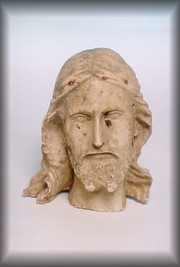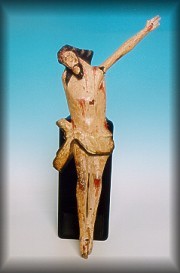
|
Evora, a beautiful
Portuguese Dubrovnik, was the place of my return. Five hundred years ago the Jews from
Evora had been sent into exile and arrived in Dubrovnik. One of them was a physician. I
was now coming back as a physician, Jew and Croat, bringing to Evora the strength of
Dubrovnik, as well as the disaster of Černobil, the return of Tatars, the suffering of
Cambodian refugees, the earthquakes of Japan, white and black Namibia, the Pantheon,
Aesculapius; every Christ’s step in the Holly Land, the escape to Egypt and the
Pyramids. I brought the Calvary of Wounded Christ in Croatia and Bosnia and Herzegovina,
the Vukovar hospital, besieged Dubrovnik, all our missing, captured, displaced, our
refugees. I felt both human power and weakness, the tragedy of abandonment and the power
of faith. I was aware of the inefficacy of the international humanitarian protection and
the need for its improvement. The members of the parliaments of Mediterranean countries met in Evora, Christians, Moslems and Jews, to discuss the issues of security, peace and tolerance. I was wondering if such meetings made sense at all. I could have been spending the time I am spending here helping someone in the Danube Region or contributing to the building of the Croatian hospital in Nova Bila. Deeep in thought, I was coming down an old stone road that lead through Evora., when I came across an antique shop. It was closed, the door secured with iron bars. I peeked inside and, although it was dark, I felt something lit inside me. It was the same kind of excitement I always used to feel before meeting Wounded Christ. The urge to come in was so strong that I went looking for the owner . Having found him, I asked him to open the shop. I entered and, in the darkness of the shop, I found Wounded Christ. I was not expecting him here. At that moment it dawned on me that Christ did not take over the wounds of one time or place only. Christ has been alive for two thousand years visiting all those that have met with misfortune, taking over their wounds and meeting every man who wants to meet Him. Wounded Christ never stops bearing the Cross and there is nobody among us does not have to decide, as Šimun Cirenac had, whether to help Christ or not. We all have to decide whether we will kiss His wounds as the people of Dubrovnik did at a mass in 1991, whether we will go down on our knees like the Holy Father did in Sarajevo, whether we will give Him shelter as Father Marko did in Ilok, whether we will save Him from shelling in Stara Mokošica, whether we will build and dedicate to Him the Franciscian and Croatian hospital in Nova Bila and finally, whether we will, following the example of the defenders of Vukovar, lend our hand and start renewing Croatia. With peace reigning in Croatia today, we are obliged to exploit our painful experience in order to provide help to other people in their hardships. Under a huge pile of concrete and iron that remained of the church of the Holy Family in Kupres we found Wounded Christ, lacking a hand. We asked him “Where are your hands?” He made us realise that we had always been God’s associates, and that giving our hands to others and being the hands of Christ is the real meaning of our lives. |
